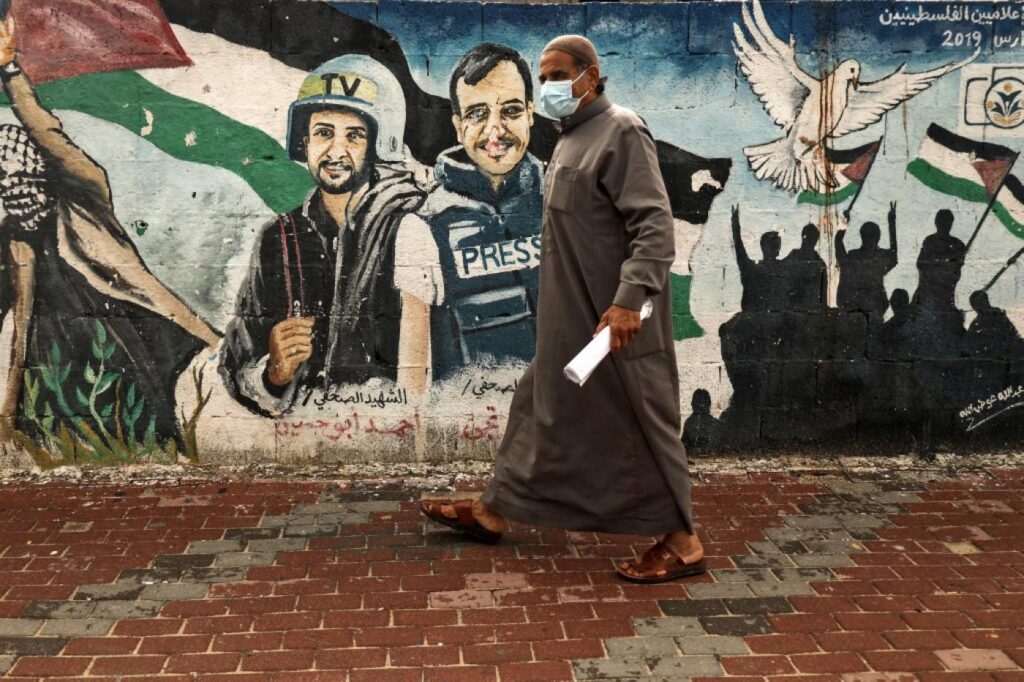Over 250 journalists, including reporters from The Washington Post, WSJ and LA Times, sign letter calling on media to stop obscuring oppression of Palestinians

An open letter “written by and for journalists” is calling on the news industry to stop “obscuring Israeli occupation and the systemic oppression of Palestinians” in the media.
Signed by 250 journalists working for some of the world’s top media outlets, the letter, published on Wednesday, accuses the mainstream media of “failing” its audience with a “decades-long journalistic malpractice” that has misinformed the public on the reality of Israel’s occupation.
“Finding truth and holding the powerful to account are core principles of journalism,” the letter reads.
“Yet for decades, our news industry has abandoned those values in coverage of Israel and Palestine. We have failed our audiences with a narrative that obscures the most fundamental aspects of the story: Israel’s military occupation and its system of apartheid.”
The letter calls on journalists and news outlets to meet their “duty” and “change course immediately” in terms of coverage on Israel and Palestine.
“The evidence of Israel’s systematic oppression of Palestinians is overwhelming and must no longer be sanitized,” it says.
Journalists from the Washington Post; the Wall Street Journal; The Daily Beast; The Texas Observer; Vice News; The Intercept; Jewish Currents; The Los Angeles Times; Condé Nast and others signed on to the letter.
Journalists under fire
Not all that signed were willing to do so publicly, however, as about 30 journalists chose to sign the letter while only providing the name of their company, not themselves. Still, organisers have assured that each of the signatures was verified as current or former journalists.
Sana Saeed, a host at AJ+, said that those who signed anonymously are likely still doing the “internal hard work in their newsrooms” while working within the constraints of contracts and expectations.
“As journalists, with varying contracts, editorial protections, environments & job securities, the work to push against the media complicity in apartheid is constant,” Saeed said on Twitter.
The decision to sign anonymously is likely linked to the backlash individuals in the media and other industries have faced in recent weeks over speaking out about Israel’s occupation policies.
Emily Wilder, one of the signatories of Wednesday’s letter, was publicly sacked by the Associated Press – just 16 days after she was hired on as a news associate – due to pro-Palestinian posts she had made on social media. Her dismissal did not sit well with many former colleagues, as more than 100 AP journalists signed on to a different letter demanding answers from the company.
Journalists in Australia are also facing backlash after asking their newsrooms to improve coverage of Israel and Palestine.
The letter, published in late May under the hashtag #DoBetterOnPalestine, has garnered more than 739 signatures from journalists, media workers, writers and commentators.
Management at two of Australia’s largest public broadcasting corporations – Special Broadcasting Service (SBS) and Australian Broadcasting Corporation (ABC) – asked at least two dozen staffers to remove their signatures from the letter, according to The Intercept, which cited letter organisers and the Media, Entertainment & Arts Alliance, an Australian media union.
Several staffers at both SBS and ABC said they were also told that their contracts might not be renewed.
In Canada, another letter made waves with more than 2,000 signatures from people making another call for better media coverage on Israel and Palestine.
The letter, addressed to US and Canadian newsrooms and journalists, writers, and students, accused the mainstream media of ignoring Palestinian voices and the Palestinian narrative.
The letter noted that some Canadian style guides “still ban the use of the word ‘Palestine’ in coverage”, and also noted that only two Canadian publications covered a Human Rights Watch report last month that declared Israel had adopted apartheid state policies.
Shortly after that letter was published, organisers told The Intercept that they started hearing from journalists who had been called into meetings with management at their respective newsrooms to discuss why they had signed. At least three people were completely taken off coverage of the region, according to organisers.
Post Disclaimer
Disclaimer: 'We have failed': Journalists unite and demand truthful coverage of Israeli occupation By Sheren Khalel - Views expressed by writers in this section are their own and do not necessarily reflect Latheefarook.com point-of-view